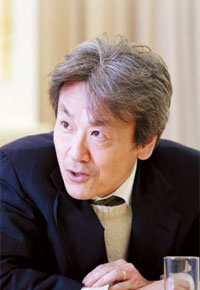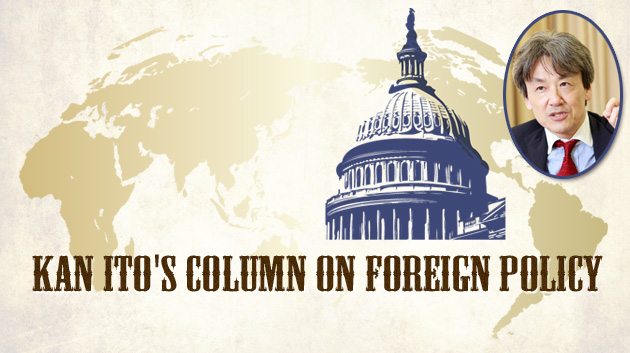Put a Hold on China’s Superiority by Being a ‘Balancer’
Kan Ito's Column on Foreign Policy

Kan Ito
Born in 1953, Kan Ito is an international political analyst. He graduated from the Faculty of Economics at the University of Tokyo and studied American political history and international relations at Cornell University before working as an international politics and financial analyst at a business consultancy firm. His works include Chugoku no Kakusenryoku ni Nihon ha Kuppuku suru [Japan’s Submission to China’s Nuclear Capability], published by Shogakukan, and Jimetsu suru Amerika Teikoku [The Self-destruction of the American Empire], published by Bunshun Shinsho.
Fierce Struggle to Survive in the Age of Multi-Polarization
It is doubtful that America will maintain its supremacy over East Asia in the mid-2020’s when its defense budget will be cut due to financial problems. China does not seem to want to declare war on Japan just yet, but from an American point of view, China’s attitude towards Japan resembles that of a dog owner trying to discipline his dog. Within 10 years, China will go all-out and try to absorb Japan.
Japan is once again likely to perish if this situation continues. When the United States defeated Japan in the Second World War, Japan was only deprived of its diplomatic and defence rights, yet its autonomy was preserved to some extent. However, capitulating to a country like China that has no concept of human rights would herald disastrous consequences.
International politics will shift to a multi-polarized structure from now on. Within European politics until the First World War, there was a tacit understanding that each country was a Christian nation. No attempts were made to try to destroy a country after winning a war, or to try to change an opponent’s values and culture with triumph. .
However, within the framework of multi-polarized international politics in the 21st century, no mutual understanding, at least culturally, should be necessary at all. Japan should prepare to conduct its diplomacy with the goal in mind of balancing power in order to maintain its independence due to this harsh environment and the potential ‘clash of civilizations’ that might bring about its total destruction if Japan were to lose in battle.
It Is Necessary to Buy Nuclear Warheads From the US
Japan should consolidate its grand strategy of suppressing Chinese superiority by becoming a ‘balancer’. If China increases its military power, Japan, Southeast Asia, and Russia will be in trouble. Therefore, in order to prevent hegemonic China from becoming too powerful, Japan needs to maintain its military balance. Japan specifically needs to cooperate with the US and India in terms of its military, and Japan must establish a Russo-Japanese entente*.
Moreover, in order to restrain a hegemonic China that possesses its own nuclear arsenal, Japan must have its own nuclear deterrent. By harnessing Japanese technology, only two or three years would be needed in order to produce nuclear warheads. But if it would be too difficult politically with regard to the US, American nuclear warheads might need to be procured instead. The important thing is that Japan should negotiate the procurement of nuclear warheads with countries besides the US, such as the UK, France, India, and Israel. With this gesture, the US would take the matter seriously and become more positive about selling them to Japan.
It is more likely that the US will be persuaded if the following points are emphasised: ‘Japan as a balancer can check Chinese superiority, and defend freedom and democracy in tandem with the US’ and ‘Japan and the US share the same values’.
Furthermore, the government of Japan should also persuade the public by explaining the reality of its position in the international community. Japanese people need to be convinced that ‘Like it or not, international politics will revert to the Balance of Power era. In such a climate, Japan must survive by wisely paying attention to the military balance of each country’.



















